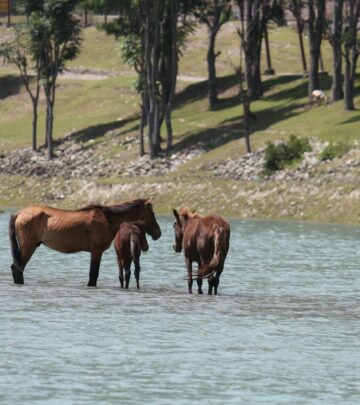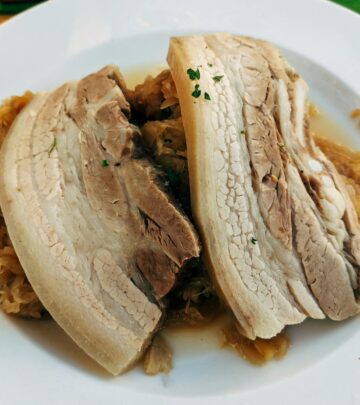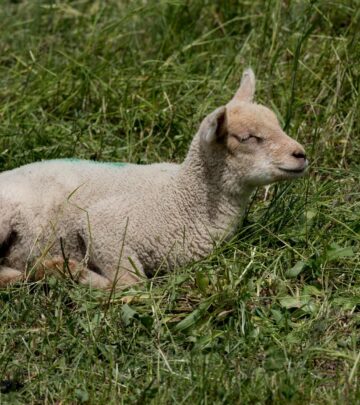Why Does My Dog Eat Dirt: Causes, Risks, And Prevention Tips
Understanding your dog’s soil cravings can help you address health and behavior concerns.
Why Does My Dog Eat Dirt?
Many dog owners have noticed their beloved companions munching on something unexpected while outside—dirt. This strange and sometimes concerning behavior is more common than you might think. But why do dogs eat dirt, and should you be worried?
What Is Dirt-Eating in Dogs?
When dogs consume non-food items like dirt, soil, or mud, the behavior is termed geophagia. This odd habit is a type of pica, an eating disorder where animals eat non-nutritive substances. While a single taste of dirt may not be an emergency, persistent or compulsive dirt-eating can signal deeper health or behavioral issues that require attention.
Main Reasons Dogs Eat Dirt
Dogs might nibble on dirt for a variety of reasons, ranging from simple curiosity to more serious medical issues. Understanding the root cause is vital for protecting your dog’s health.
1. Nutritional Deficiencies
One of the most commonly cited reasons for dirt eating is a lack of certain nutrients in a dog’s diet. If food doesn’t provide essential minerals like iron, calcium, or other trace elements, dogs may instinctively seek these missing nutrients from the soil.
- Dogs on poorly balanced diets, low-quality kibble, or unbalanced home-cooked meals are especially at risk.
- Bones are an important source of minerals; if your dog’s diet doesn’t contain bones or sufficient supplements, they might seek minerals elsewhere—like in dirt.
- Nutritional investigations are recommended if the behavior is persistent and there are no other clear causes.
2. Medical Conditions
Sometimes, dirt-eating is a response to underlying medical problems that alter a dog’s appetite or drive them to seek nutritional support.
- Anemia: A common medical cause, dogs with low red blood cell count may crave soil, clay, or dirt in an attempt to obtain iron.
- Parasitic Infections: Intestinal parasites like hookworms or roundworms can cause nutrient loss and digestive upset, manifesting as dirt-eating.
- Liver or Kidney Disease: Dysfunction in these organs may negatively affect appetite and cause peculiar cravings, including geophagia.
- Chronic digestive or endocrine disorders: Conditions like inflammatory bowel disease or hypothyroidism can prompt similar behavior.
3. Behavioral Reasons and Environmental Factors
Not all dirt-eating dogs are physically ill. In many cases, the behavior can be explained by their surroundings or mental health.
- Curiosity and Exploration: Puppies and young dogs are especially prone to sampling unusual substances as they learn about their environment.
- Boredom or Anxiety: Dogs left alone or without stimulation may develop destructive or unusual habits, like chewing or eating foreign substances, including dirt.
- Attention-seeking: If a dog finds that eating dirt gets them a reaction from their owner, they might repeat the behavior for the attention.
4. Gastrointestinal Distress
It’s not uncommon for dogs to seek natural remedies when their stomach is upset. While dogs more frequently eat grass for this reason, some may also ingest dirt or soil to trigger vomiting or settle their stomachs.
Dangers and Health Risks of Dirt Eating
Though a quick nibble of dirt rarely causes long-term harm, repeated ingestion is risky. Some potential complications include:
- Intestinal Parasites: Many soils harbor harmful organisms, including Giardia, roundworms, and hookworms, which can invade your dog’s digestive tract.
- Toxins and Chemicals: Dirt may contain pesticides, fertilizers, antifreeze, or other hazardous substances that pose immediate health dangers.
- Physical Obstructions: Consuming foreign objects found in the soil (stones, sticks, bits of metal, or plastic) can cause choking or gastrointestinal blockage, sometimes necessitating surgery.
- Dental Damage: Stones or gravel can chip, crack, or break your pet’s teeth.
- Gastrointestinal Impaction: Large loads of soil cannot be digested and may lead to dangerous blockages, commonly in the stomach or intestines.
- Gastrointestinal Injury: Sharp items in dirt can injure or pierce the walls of the digestive tract, causing pain or even life-threatening infections.
- Bacterial Infection: Soil bacteria can upset the balance of normal gut flora and potentially cause illness.
- Symptoms to Watch For: Diarrhea, vomiting, lethargy, weight loss, bloated abdomen, and appetite loss are red flags that warrant immediate veterinary attention.
Could Eating Dirt Be a Sign of a Serious Issue?
Because dirt eating can be a symptom of significant underlying problems—particularly if accompanied by other symptoms—it’s important to observe your dog closely and seek veterinary advice if dirt-eating is persistent or associated with:
- Chronic diarrhea or gastrointestinal upset
- Weight loss
- Persistent vomiting
- Pale gums or weakness (indicating potential anemia)
- Lethargy or change in normal behavior
- Visible worms in feces or other signs of parasitic infection
Your veterinarian may recommend blood tests, a fecal exam, or additional diagnostics to determine the root cause of geophagia in your pet.
What Should Owners Do If Their Dog Eats Dirt?
While the urge to panic is understandable, here are practical steps you should take if you observe your dog eating dirt:
- Supervise Outdoor Activities: Monitor your pet while they’re outside. Redirect their interest toward acceptable objects, like toys or treats.
- Ensure a Nutritionally Complete Diet: Work with your veterinarian to review your dog’s food and supplements. Fortify their meals with appropriate vitamins and minerals if suggested.
- Regular Veterinary Care: Have your dog checked for common medical conditions such as anemia, parasites, chronic GI disturbances, or organ dysfunction.
- Reduce Stress and Boredom: Provide ample physical exercise and mental stimulation. Puzzle feeders, fetch, or agility games can distract from problematic behaviors.
- Prevent Access to Toxic or Dangerous Areas: Block access to flower beds, garden plots, or any areas treated with chemicals.
- Treat Underlying Medical Issues: If a health problem is detected, address it directly with your vet’s guidance.
How Can You Prevent Dirt Eating?
Prevention is always preferable. Here are a few quick prevention tips for most cases:
- Walk your dog on a leash to limit access to tempting dirt patches.
- Provide a balanced diet fit for your dog’s life stage and breed.
- Clean up your yard and garden, especially if you use any chemicals or fertilizers.
- Engage your dog in interactive play and focused training to stave off boredom.
- Practice positive reinforcement—praise your pet when they leave the dirt alone.
- Offer safe chews and toys to keep your dog’s mouth busy in a healthy way.
Veterinary Evaluation: What to Expect
If dirt eating becomes a habit or is paired with negative symptoms, your vet’s assessment may include:
- Physical exam, noting weight, gum color, and hydration
- Bloodwork to check for anemia or organ dysfunction
- Fecal tests to identify parasites or bacterial imbalances
- Dietary history and possible adjustments
- Behavioral and lifestyle evaluation
Quick Comparison Table: Causes vs. Dangers of Dirt Eating
| Potential Cause | Possible Danger |
|---|---|
| Nutritional deficiency | Parasite infection, toxin ingestion |
| Parasitic infection | GI upset, weight loss |
| Anemia or chronic disease | Obstructions, impaction |
| Boredom or anxiety | Dental damage, choking |
| Upset stomach or nausea | Stomach bloat, vomiting |
| Environmental exploration | Bacterial infection |
Frequently Asked Questions (FAQs)
Q: Is it ever normal for dogs to eat dirt?
Occasional dirt tasting is common, especially in puppies. Routine, compulsive, or excessive intake, however, should always be viewed as abnormal and warrants investigation.
Q: Can eating dirt make my dog seriously ill?
Yes. Besides the risk of parasite infestation and toxin exposure, large amounts of dirt or stones can cause life-threatening blockages or injuries that may require emergency surgery.
Q: How can I stop my dog from eating dirt?
Identify and address the underlying cause. Work with your veterinarian for a medical evaluation, upgrade your dog’s diet, supervise outdoor activity, and enrich your dog’s environment to discourage this behavior.
Q: Should I discipline my dog for eating dirt?
Discipline is not effective for this issue. Instead, use positive reinforcement when your dog stops dirt eating and redirect their attention. Seek medical or behavioral advice if needed.
Q: When should I call the vet?
If your dog eats large amounts of dirt, exhibits digestive upset, loses weight, seems weak or lethargic, or if you suspect poisoning or blockage, call your veterinarian immediately.
Key Takeaways
- Dirt eating (geophagia) in dogs has multiple potential causes: nutritional deficiencies, medical issues, digestive distress, boredom, or anxiety.
- Potential dangers range from parasites to serious blockages and toxin ingestion.
- Persistent or compulsive dirt-eating always warrants a veterinary check-up.
- Prevention focuses on a balanced diet, behavioral enrichment, supervision, and medical care.
If you notice this peculiar habit in your dog, stay observant and seek guidance from your veterinarian to ensure your furry friend stays healthy and safe.
References
- https://nativepet.com/blogs/health/why-do-dogs-eat-dirt-reasons-dangers-treatment-and-prevention
- https://leparvet.net/blog/why-is-my-dog-eating-dirt/
- https://thenaturaldogstore.com/blogs/health/why-do-dogs-eat-dirt
- https://www.cronullavetclinic.com.au/why-is-my-dog-eating-dirt/
- https://www.purina.com/articles/dog/health/symptoms/why-do-dogs-eat-dirt
Read full bio of medha deb
















Community Experiences
Join the conversation and become a part of our empowering community! Share your stories, experiences, and insights to connect with other beauty, lifestyle, and health enthusiasts.